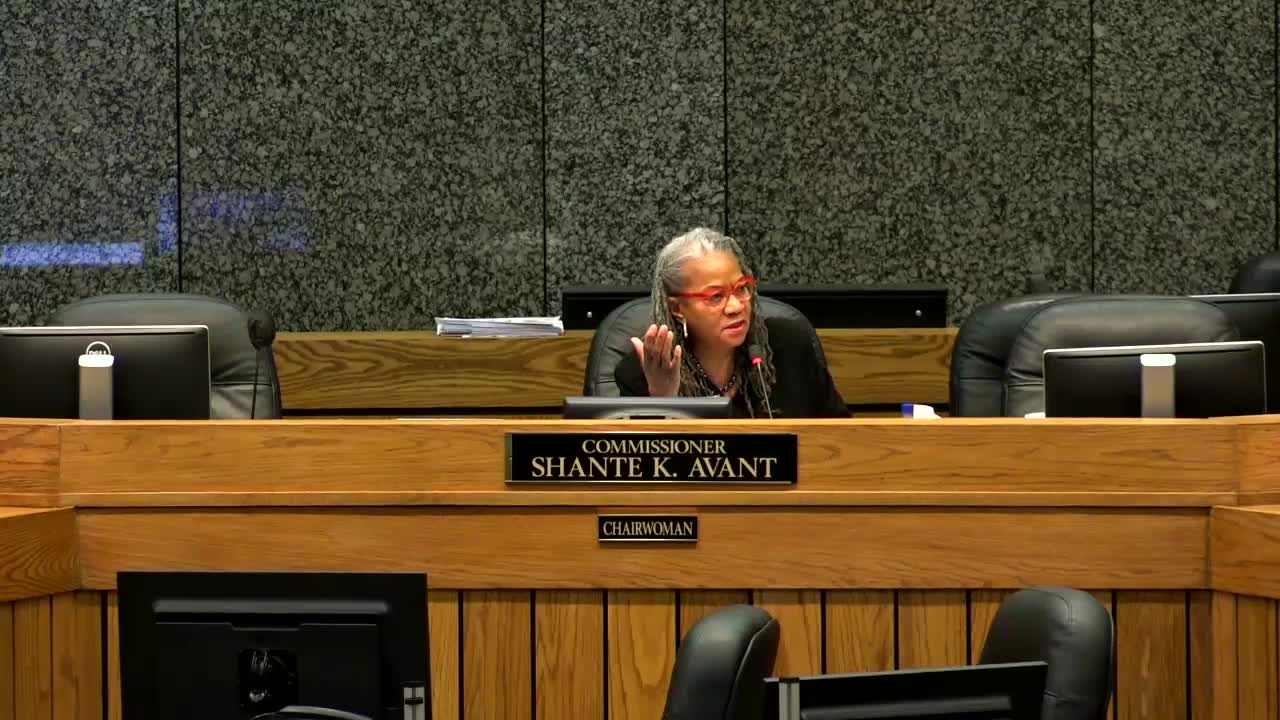Shelby County ad hoc panel narrows PILOT reforms, debates independent oversight and public reporting
Get AI-powered insights, summaries, and transcripts
Subscribe
Summary
An ad hoc Shelby County committee on payments in lieu of taxes (PILOTs) discussed tightening abatement terms, adding monitoring and public reporting, and agreed to a revised meeting schedule to finalize reform language.
At a Shelby County ad hoc committee meeting on payments in lieu of taxes (PILOTs), members agreed to refine and add specificity to a set of reform recommendations, prioritize community education and public reporting, and schedule two November meetings to finalize language for legal review.
The committee said the recommendations will incorporate feedback from two community engagement sessions and that members want more precise, enforceable language before presenting a draft resolution to legal staff. "This is incredible work," said Natalie McKinney, ad hoc committee member, praising the group's community outreach. "The community needs to be an intricate, integral part of this process and this assessment and thinking about recommendations."
Committee members and public commenters spent most of the meeting discussing three linked themes: (1) standardizing and limiting abatement terms; (2) strengthening monitoring and enforcement; and (3) making regular, accessible public reporting part of any reform.
On abatement limits and standardization, attendees revisited ideas raised at prior meetings, including a proposal pushed by a public commenter to cap abatements at 50% of new capital investment with a 10-year maximum and to bar abatements for predevelopment costs. Public commenter Joe Kenton recommended "50% tax abatement max. 10 years, no predevelopment" and said simplifying terms would reduce long-term liability. Committee members said such caps and clearer, uniform rules were among the options to consider but that specifics would have to be written into the proposed reforms and checked against the state statute that enables PILOT authority.
Independent monitoring and enforcement drew sustained discussion. Ad hoc committee member Dr. Austin Harrison and others said current enforcement practices vary across industrial development boards and other local pilot-granting entities and that many procedures are locally created rather than statutorily required. "We can't rely on entities to police themselves," Dr. Austin Harrison said, arguing for an independent monitoring entity or stronger enforcement requirements. He noted he found nothing in the enabling statute that prohibits pilot-granting entities from conducting unit inspections, and he urged stronger, standardized enforcement mechanisms (for example, clearer inspection or reporting duties rather than deferring to under-resourced code enforcement).
Several members pressed for routine public reporting. The committee discussed requiring quarterly or semiannual performance reports from pilot recipients and publishing meeting minutes and monitoring reports on the county website so community members can track progress. Janice Banks, an ad hoc committee member, proposed going ‘‘where people are gathering’’ to present findings and suggested quarterly public meetings and online reports so community members can see whether recommended changes are being implemented.
The committee agreed on a schedule to advance the work: a longer working session on November 6 to "agree to the substance" of reforms and to draft legal language, a follow-up meeting on November 20 to review any comments from pilot-granting entities (IDBs) and finalize recommendations, and a plan to submit a draft resolution for legal review between the November meetings so the resolution can be scheduled for the county committee and commission in December (committee meeting Dec. 10; commission meeting Dec. 15). Committee staff asked that the draft be submitted to legal as early as possible after November 6.
There were no formal votes recorded during this meeting. Attendees made several procedural decisions by consensus: to incorporate public feedback into the recommendations, to attempt to publish the ad hoc minutes on the county website, to invite industrial development boards to comment on the draft at the November 20 meeting, and to pursue clearer enforcement and monitoring provisions in the draft reforms.
Public comment at the meeting emphasized caps and guardrails. Joe Kenton criticized current practices as benefiting corporate interests and urged a 50% cap and a 10-year limit; he also estimated such changes could reduce future abatement liability substantially (he said "about 60%" in the transcript). Committee members reiterated that any local reform must be consistent with state statute and considered a range of enforcement tools, including reducing the number of entities that can grant pilots or creating a new independent oversight function.
The committee also discussed state-level developments: members noted a bill being discussed in the legislature that would centralize economic development authority in the state Department of Economic and Community Development, and they said completing their local reforms promptly could preserve local control or at least allow Shelby County to show a local regulatory framework in advance of any state change.
Next steps: the committee aims to use the Nov. 6 meeting to agree on the substantive reforms and to allow a small drafting group to turn those reforms into statutory or regulatory language for legal review ahead of the Nov. 20 meeting. The committee plans to invite pilot-granting entities to comment at the Nov. 20 session and to have the draft ready for the county committee meeting on Dec. 10 and the commission vote on Dec. 15, pending legal review and scheduling.
